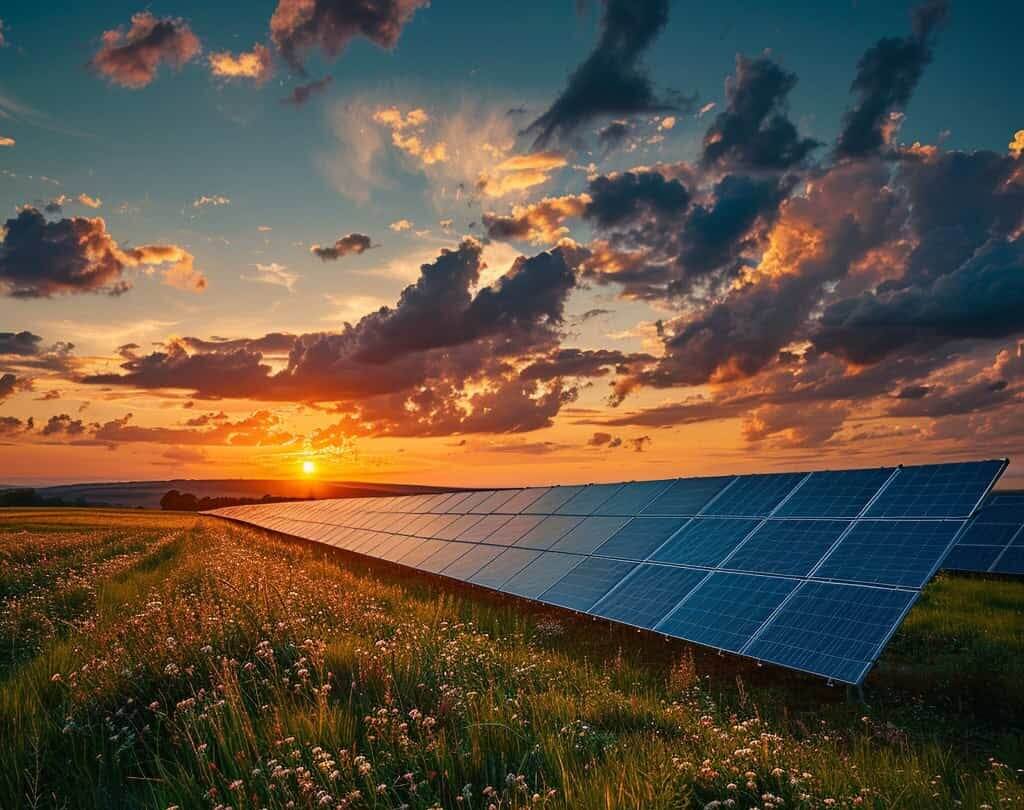With growing concerns about climate change and sustainability, the energy sector is witnessing a significant shift towards renewable sources. Solar panels, once a niche technology, are now at the forefront of this transformation. However, as we strive for a greener planet, it’s crucial to ensure that our solutions are as eco-friendly as possible. This article dives into the advancements and significance of eco-friendly solar panels, exploring how they represent a sustainable shift in renewable energy.
Environmental Impact of Traditional Solar Panels
Traditional solar panels, while a step towards renewable energy, came with their own set of environmental issues. The manufacturing process involved significant carbon emissions, resource depletion, and waste generation. High energy consumption during the production phase also diminished the overall environmental benefits of these panels. For instance, the extraction of raw materials like silicon and the use of hazardous chemicals contributed to the environmental footprint of traditional solar panels. Additionally, the disposal of old or damaged panels often leads to waste management challenges, further exacerbating environmental concerns.

Emerging Trends in Eco-Friendly Solar Panel Technology
Innovations in eco-friendly solar panel technology is regularly transforming the landscape of renewable energy. One significant trend is the development of thin-film solar panels, which use fewer resources and generate less waste during manufacturing. Researchers are also exploring the use of organic materials and biodegradable components to minimise environmental impact. These innovations are not only making solar panels more sustainable but also more affordable and accessible to a broader audience.
Lifecycle Assessment and Eco-Certifications
Understanding the environmental impact of solar panels requires a comprehensive lifecycle assessment (LCA). LCA evaluates the environmental performance of solar panels from raw material extraction to end-of-life disposal. Eco-certifications, such as the Cradle to Cradle certification, provide a benchmark for assessing the sustainability of solar panels. These certifications consider factors like material health, renewable energy use, and social fairness. By choosing solar panels with eco-certifications, consumers can ensure they are supporting environmentally responsible products and companies.

Energy Efficiency and Performance
Eco-friendly solar panels are designed to optimise energy efficiency and performance. Innovations such as bifacial panels, which capture sunlight from both sides, and perovskite solar cells, known for their high efficiency rates, are leading the way. These technologies enhance the ability of solar panels to generate electricity even in less-than-ideal conditions. Additionally, integrating smart grid systems and energy storage solutions maximises the benefits of solar energy, ensuring a consistent and reliable power supply. The improved efficiency of eco-friendly solar panels translates to lower energy costs and a reduced carbon footprint for consumers.
Recycling and Circular Economy Initiatives
Recycling solar panels is a critical component of promoting a circular economy in the solar industry. Several initiatives focus on recovering valuable materials, such as silicon, silver, and aluminium, from end-of-life panels. This not only reduces waste but also conserves resources and reduces the need for new raw materials. Companies are developing advanced recycling technologies, such as chemical and thermal processes, to efficiently extract and reuse materials from old panels. By adopting circular economy principles, the solar industry can minimise its environmental impact and create a more sustainable energy ecosystem.
Consumer Preferences and Market Trends
Consumer attitudes towards eco-friendly solar panels are increasingly positive, driven by a growing awareness of environmental issues and a desire for sustainable solutions. Market trends indicate a rising demand for green energy products, with consumers prioritising sustainability in their purchasing decisions. Surveys show that a significant percentage of consumers are willing to pay a premium for eco-friendly solar panels. This shift in consumer preferences is encouraging manufacturers to invest in sustainable technologies and practices, further driving the growth of the eco-friendly solar panel market.
Policy and Regulatory Framework
Government policies, incentives, and regulations play a crucial role in promoting the adoption of eco-friendly solar technologies. Various countries have implemented feed-in tariffs, tax credits, and grants to support the deployment of renewable energy systems. Regulations mandating the use of sustainable materials and recycling practices are also gaining traction. By creating a favourable policy environment, governments can incentivise businesses and consumers to adopt eco-friendly solar panels. This not only accelerates the transition to renewable energy but also fosters innovation and investment in sustainable technologies.

Conclusion
Eco-friendly solar panels are at the forefront of the renewable energy revolution, offering a sustainable alternative to traditional solar technologies. Through advancements in materials, manufacturing techniques, and recycling initiatives, these panels are reducing the environmental impact of solar energy systems. Consumers, driven by a growing awareness of sustainability, are increasingly seeking out eco-friendly options, further propelling market growth. Government policies and incentives are playing a vital role in fostering the adoption of these technologies. By choosing eco-friendly solar panels, we can contribute to a greener future and combat climate change.

